Stories of inspiration
Losing a home to Taal
Nov 10, 2020
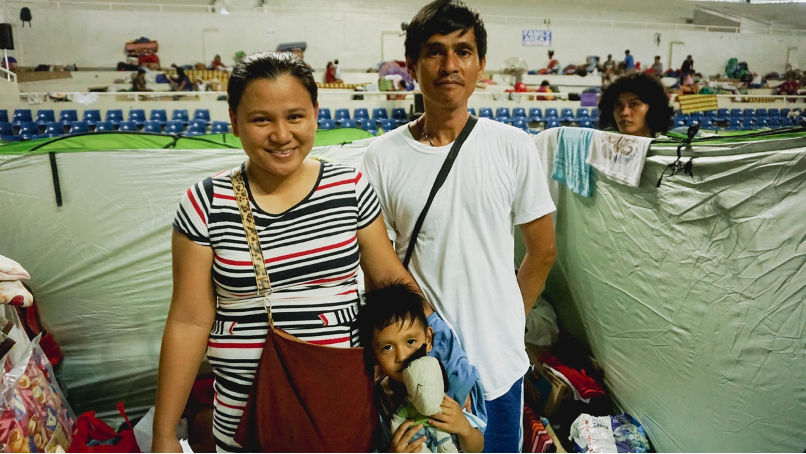
Maricel used to call Taal island her home.
That was before the main crater on the volcano island spewed a tower of ash some 15 kilometers into the sky last January 12, raining ashfall in parts of Batangas, Laguna, Cavite, Bulacan, Rizal and as far north in Metro Manila as Quezon City.
She and her husband Allan, together with their two children and their parents, held out for as long as they could and were among the last to evacuate.
“I gathered as many clothes and blankets as I could, knowing we would need these wherever we were heading. Eventually, it became more and more difficult to see and breathe,” she recounts. She was forced to unpack the beddings so that she could close all the openings and prevent ash from entering the house.
“I wasn’t sure if we were going to make it out alive,” she recounts. But they were eventually able to leave early the next day.
The six of them are currently staying in a modular tent inside the Batangas City Sports Complex, along with thousands of other evacuees who were forced to leave their homes which were located within the danger zone or within a 14-kilometer radius from Taal Volcano’s main crater.
Maricel says it was difficult to leave the home and livelihood they built over the years with sweat and tears. However, she and her mother, Cerelina, are thankful that every day they wake up next to their loved ones, especially since it was hard to flee carrying Cerelina’s husband, Marcelo, who had been disabled a few years back due to a stroke.
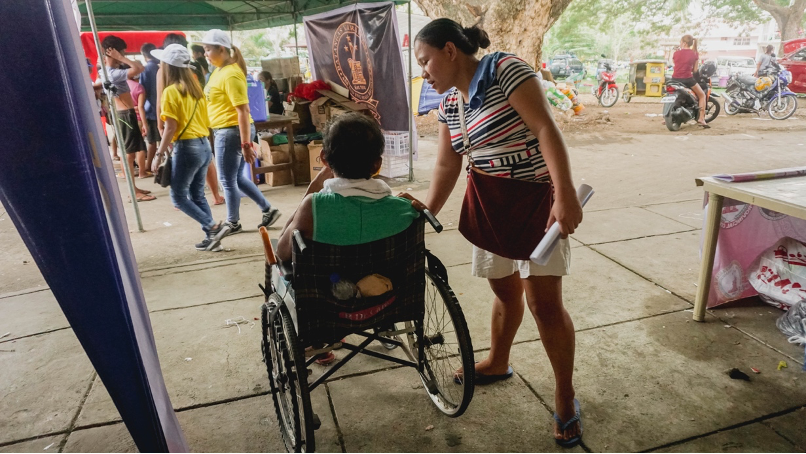
“It seemed like I grew all my strength back just to be able to carry my husband with me. We are happy that he is still with us,” says Cerelina.
They are also thankful for the help overflowing from fellow Filipinos. “We haven’t been hungry since we arrived here five days ago. There’s actually a surplus of clothing despite the fact that there are thousands of us in here,” says Maricel.
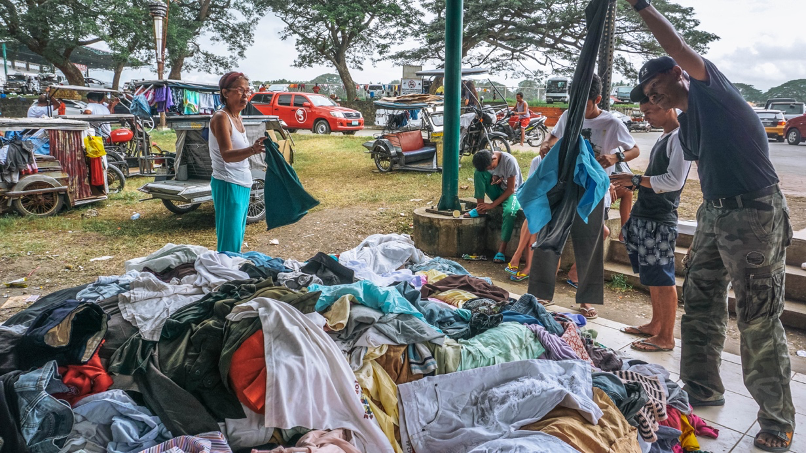
In its January 24 report, the Department of Social Welfare and Development says that a total of 88,842 families, consisting of 346,244 people in CALABARZON (Region IV), have been affected by the Taal Volcano unrest.
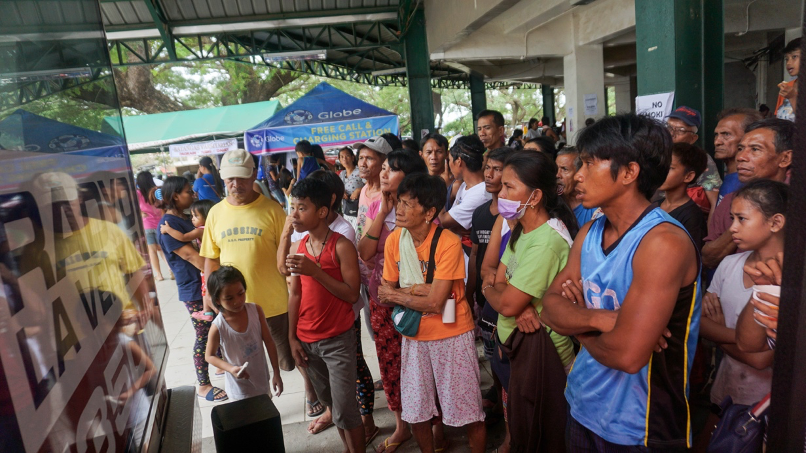
But only about two out of five (39.72% or 137,538 people) are taking shelter in 488 evacuation centers, according to the report. The rest are staying with family, relatives and kind-hearted individuals and families outside the evacuation areas.
Help has been pouring in not only from government relief agencies, but also from companies, civic groups and private individuals.
Pilipinas Shell, which has a refinery in Tabangao, Batangas and whose supply and distribution network traverses roads included in the lockdown order, is among the companies quick to respond to the needs of the evacuees.
Strategically-located Shell retail stations operate 24/7 as emergency response sites as well as drop-off points for relief goods from the public.
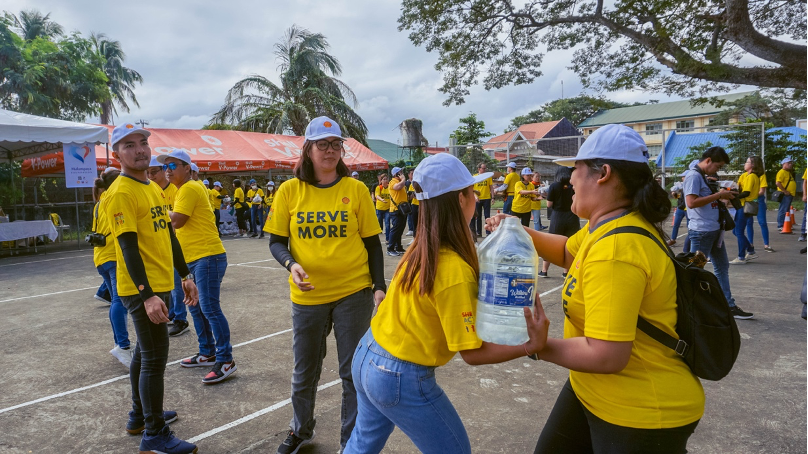
The company has donated P1 million to the Philippine Disaster Resilience Foundation (PDRF) for face masks and other essential relief goods, and 3,000 liters of diesel fuel to relief agencies of Batangas local government units.
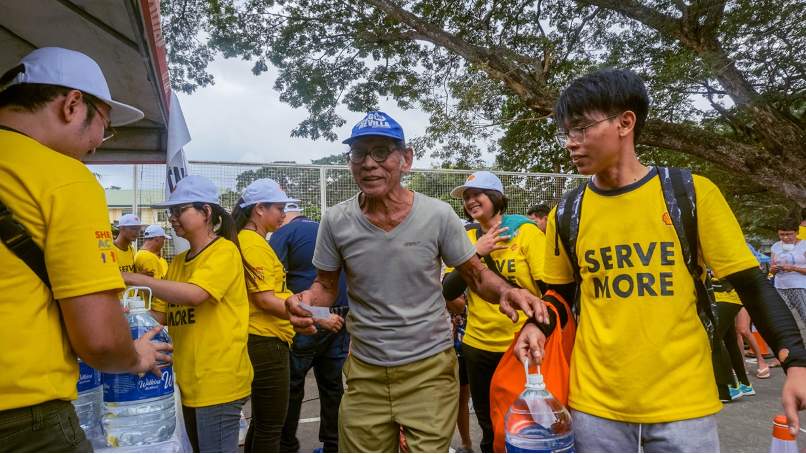
Aside from donating relief packs, the Association of Pilipinas Shell Dealers also transport relief goods from the retail stations to evacuation centers. Shell Philippines Exploration B.V. (SPEX) also donated another P3 million worth of relief goods for evacuees in Batangas.

Over 100 Shell employees have volunteered to distribute relief goods and facilitate fun games for the kids, in a set-up that included an inflatable playground, in partnership with Pilipinas Shell Foundation, Malampaya Foundation and Shell Retail.
Maricel is especially grateful for the new pillows, blankets and beddings from Pilipinas Shell, recalling that these were the items she had sacrificed to protect her home and loved ones.
Every day, she sees countless numbers of volunteer groups and individuals arrive with goods, helping families like hers to live one day at a time. While she is grateful for the overwhelming response from the public, she is just waiting for the day she and her family can rebuild their lives.
“We are entirely grateful for all the help, but every day we become more and more uncertain if there’s still a place we can go home to after all this,” she says.
To find out more about how you can help Maricel and other evacuees, please visit:
https://www.shell.com.ph/sustainability/communities/project-shelter-taal-volcano-emergency-relief-efforts.html#vanity-aHR0cHM6Ly93d3cuc2hlbGwuY29tLnBoL3N1c3RhaW5hYmlsaXR5L2NvbW11bml0aWVzL3Byb2plY3Qtc2hlbGx0ZXItdGFhbC12b2xjYW5vLWVtZXJnZW5jeS1yZWxpZWYtZWZmb3J0cy5odG1s
Related stories:
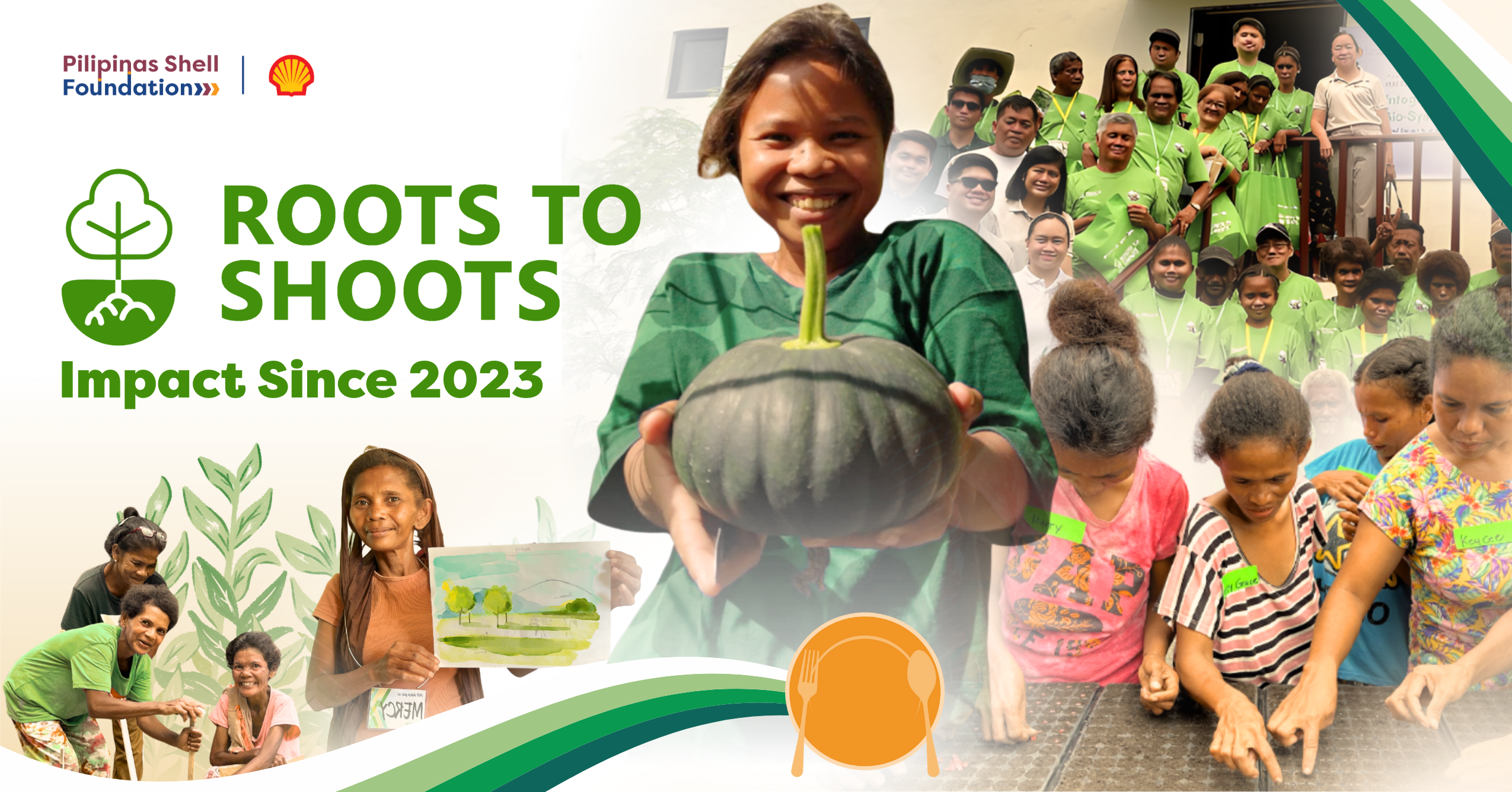
Growing Health, Growing Hope: Roots to Shoots Deepens Impact in Aeta Communities
Since 2023, the Roots to Shoots Program has strengthened Aeta communities in Bamban, Tarlac and Mabalacat City, Pampanga through integrated support in child nutrition, food security, livelihood development, and water access.
As of 2025, more than 2,000 individuals have been reached, with measurable gains in nutrition recovery, farmer training, enterprise development, and the construction of a community-managed water system.
Now in its second year, Roots to Shoots continues to demonstrate that healthier children thrive when households are economically stable and communities are supported by strong, sustainable systems.
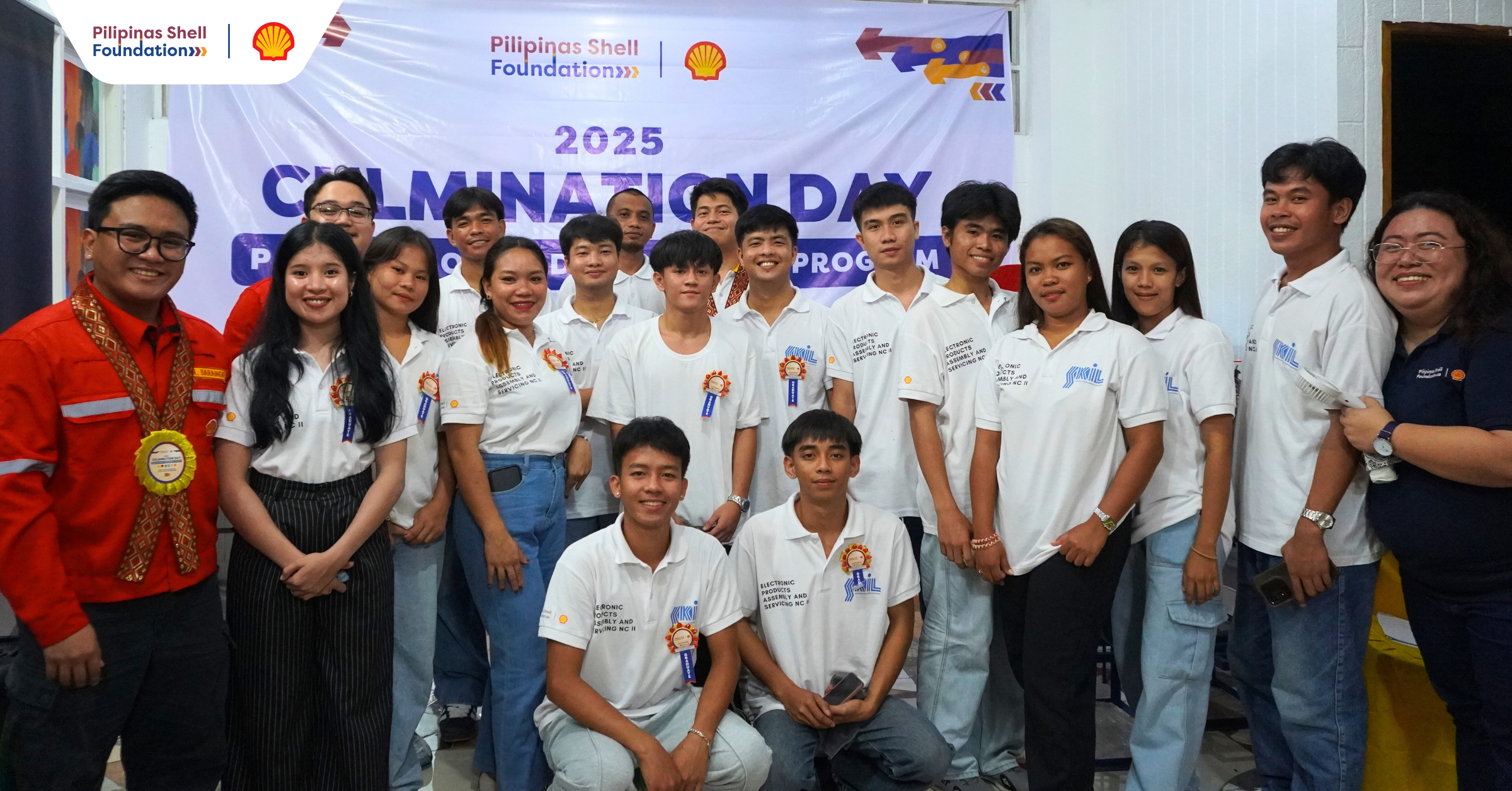
Turning Milestones into Momentum: Celebrating Progress in Pasacao
Communities in Pasacao, Camarines Sur came together to celebrate a year of shared progress under the Pasacao Social Development Program. From skills training and enterprise support to road safety and emergency preparedness, Culmination Day 2025 highlighted how partnerships translated into real opportunities, safer environments, and stronger local communities.

The Shell–PhilDev Scholarship Program: Investing in STEM and Empowering Futures
Since 2013, the Shell–PhilDev Scholarship Program has supported high-potential Filipino students pursuing STEM degrees, combining financial assistance with mentorship, leadership development, and industry exposure to prepare scholars for meaningful careers.
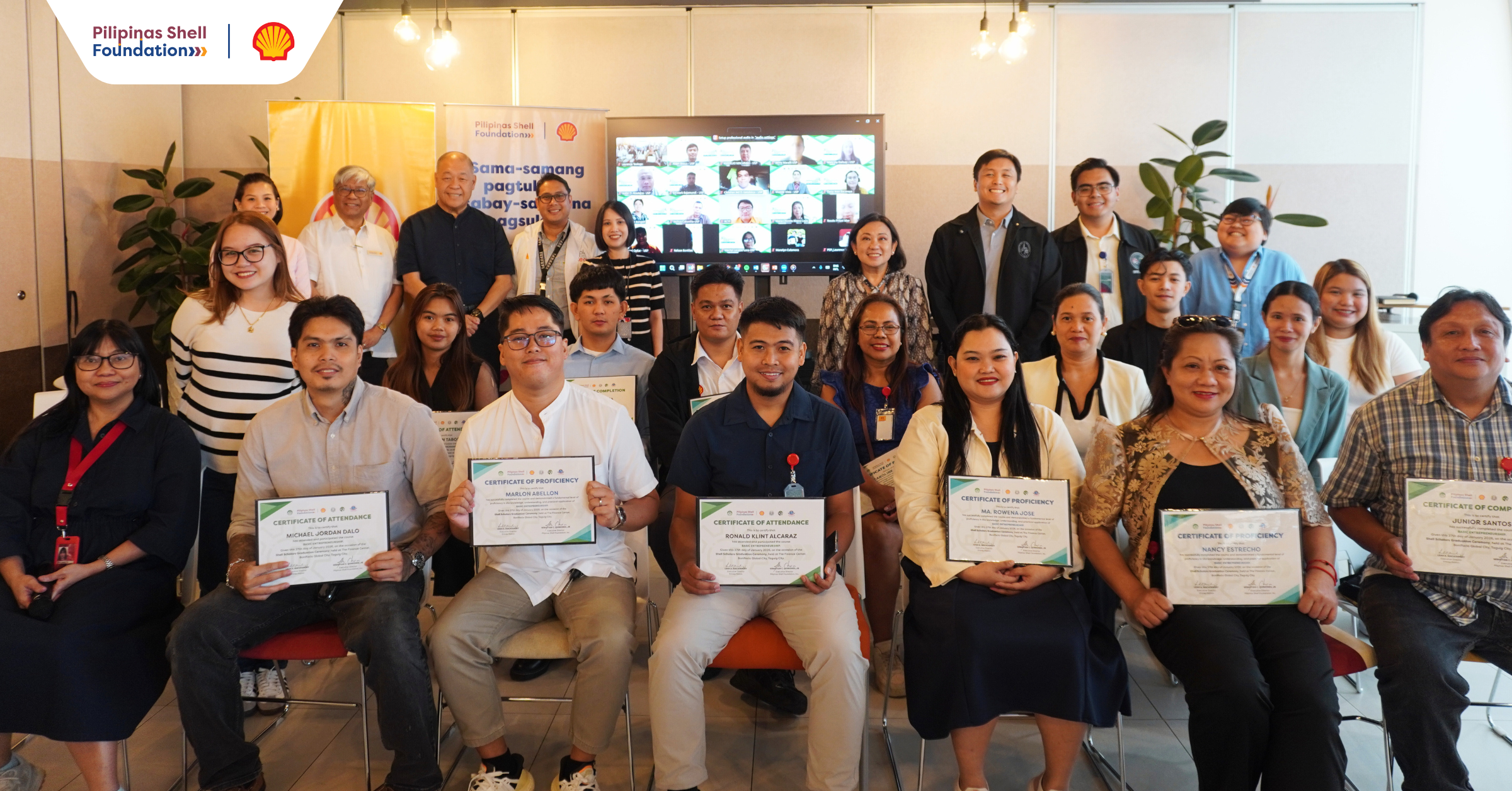
PSFI Recognizes Batch 5 Graduates of the Basic Entrepreneurship Program for Shell Scholars
Pilipinas Shell Foundation, Inc. recognized 36 graduates of Batch 5 of the Basic Entrepreneurship Program under Shell Unlad sa Pasada, marking an important milestone in equipping Shell scholars with practical skills for livelihood development and enterprise readiness.

Never Missing a Day: How Christopher Turned Opportunity into Skills
Christopher Alcantara, a father from La Union, took a leap of faith when he applied as a SKIL scholar in Automotive Servicing NC I. From driving a tricycle and doing farm work, he committed himself fully to learning new skills that could lead to stable employment. Through hands-on training, leadership development, and on-the-job experience, Christopher’s journey shows how dedication to learning can open doors to a more secure future for families.

A Legacy in Motion: Honoring Dado Banatao Through the Futures He Helped Build
Forty days after the passing of Dado Banatao, his legacy continues through the lives shaped by the Shell–PhilDev Scholarship Program. Implemented by Pilipinas Shell Foundation, Inc. in partnership with PhilDev, the program has supported 215 Filipino STEM scholars since 2013, building pathways from education to leadership and service.
